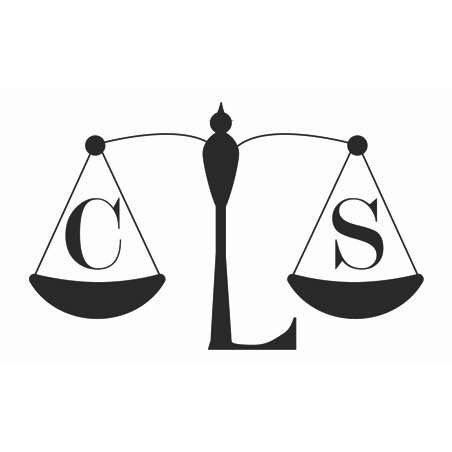Best Climate Change Law Lawyers in Sanaa
Share your needs with us, get contacted by law firms.
Free. Takes 2 min.
List of the best lawyers in Sanaa, Yemen
About Climate Change Law in Sanaa, Yemen
Climate Change Law in Sanaa, Yemen, refers to the legal framework and policies developed to address environmental issues related to climate change. Although Yemen is a developing country with unique socio-economic challenges, it is also vulnerable to the adverse effects of climate change, such as water scarcity, desertification, and unpredictable weather patterns. Yemen is a party to several international agreements, including the United Nations Framework Convention on Climate Change (UNFCCC) and the Paris Agreement. However, implementation and enforcement of climate change laws at both the national and local levels remain evolving disciplines. In Sanaa, specific regulations and policies are emerging in response to environmental impacts, with increased focus on sustainable resource management, pollution control, and adaptation to changing climate conditions.
Why You May Need a Lawyer
There are several situations where individuals, businesses, or organizations in Sanaa may require legal guidance regarding climate change law. You might need a lawyer if you are facing or want to address:
- Disputes about land use and environmental impact
- Government enforcement actions or inspections related to environmental compliance
- Permitting for construction, industrial, or agricultural projects that affect the environment
- Challenges resulting from water rights or usage amid shortages and drought
- Litigation or compensation claims arising from pollution, contamination, or environmental harm
- Engagement in community-based environmental initiatives or clean energy projects
- Compliance with international environmental agreements or local regulatory requirements
- Advising non-governmental organizations (NGOs) or local advocacy groups on policy and law
A legal professional with experience in climate change law can provide guidance on compliance, represent you in negotiations with government bodies, and help you understand your rights and obligations under local and international law.
Local Laws Overview
Climate change law in Sanaa is influenced by both national legislation and international commitments. Yemen has established various environmental protection laws, the most prominent being the Environment Protection Law No. (26) of 1995, which sets out general environmental policies and regulations. Specific to climate change, the government has adopted strategies and frameworks, such as the National Adaptation Programme of Action (NAPA) and the Intended Nationally Determined Contributions (INDC) under the Paris Agreement.
In Sanaa, key legal aspects to consider include:
- Laws regulating pollution and emissions from industry and transportation
- Rules governing water resource management, which are crucial due to water scarcity
- Requirements for environmental impact assessments before launching significant projects
- Policies promoting sustainable land use and urban planning under the Socotra Archipelago Conservation Zoning Plan and similar initiatives
- Compliance with national climate strategies aimed at adaptation and disaster risk reduction
Enforcement of these laws can be challenging due to ongoing conflict and administrative limitations, but local authorities and courts retain jurisdiction over environmental and climate-related matters.
Frequently Asked Questions
What is climate change law?
Climate change law covers all legal rules and policies aimed at preventing, mitigating, or adapting to the effects of climate change. This includes regulations on pollution, emissions, conservation, and the use of natural resources.
Does Yemen have specific laws to address climate change?
Yemen has general environmental protection laws and is part of international agreements addressing climate change. While there is no comprehensive climate change law, several policies and strategies specifically target climate adaptation and mitigation.
What government body oversees environmental protection in Sanaa?
The Environment Protection Authority is the main governmental body responsible for enforcing environmental and climate-related laws and regulations in Yemen, including Sanaa.
Is it mandatory to obtain an environmental impact assessment for new construction projects?
Yes, most major construction or development projects require an environmental impact assessment to evaluate and mitigate their environmental effects as per Yemen's environmental regulations.
What should I do if my business is accused of violating climate-related regulations?
You should consult a qualified lawyer with experience in environmental and climate change law to understand your rights, gather evidence, and prepare a defense or compliance strategy.
Can individuals or communities take legal action against polluters?
Yes, individuals and communities can file complaints or initiate legal proceedings against entities that cause environmental harm, seeking remedy or compensation through local courts.
Are there incentives for renewable energy projects in Yemen?
Yemen's policies encourage renewable energy development, though implementation varies. Some initiatives offer support or incentives for clean energy investments, often in coordination with international organizations.
How are water resources protected under climate change law?
Laws and policies regulate water use, set standards for efficiency, and aim to protect water sources from pollution. Water conservation is a high priority given Yemen's acute water scarcity.
How does international law affect climate change regulations in Sanaa?
As a party to major international agreements, Yemen is required to adopt national laws and policies that support global climate objectives, affecting local regulations and enforcement.
Do NGOs have a role in shaping climate change law in Yemen?
Yes, NGOs and civil society organizations often participate in advocacy, policy-making, and community projects related to climate change, sometimes working with government agencies or international partners.
Additional Resources
If you need information or assistance about Climate Change Law in Sanaa, Yemen, the following resources may be helpful:
- Environment Protection Authority - National government body overseeing environmental and climate policies
- Ministry of Water and Environment - Key agency responsible for water policy, conservation, and climate initiatives
- Local courts and administrative offices dealing with environmental disputes
- Non-governmental organizations such as Yemen Environmental Society and other local environmental advocacy groups
- International organizations active in Yemen, including the United Nations Environment Programme (UNEP), which supports climate projects and policy advice
Next Steps
If you believe you need legal guidance concerning climate change law in Sanaa, it's important to act promptly. Begin by identifying your specific issue or concern. Gather all relevant documents, such as permits, notices, or evidence of environmental impact.
Next, seek a consultation with a lawyer who has expertise in climate change or environmental law. You can contact the local bar association, ask for referrals from civil society organizations, or approach legal aid groups if cost is a concern. The lawyer can help you understand your rights and responsibilities, represent you in dealings with authorities or in court, and guide you on compliance with current laws.
Remain proactive-climate change law is a developing field in Yemen, and staying informed will help you protect your interests and contribute positively to your community’s resilience.
Lawzana helps you find the best lawyers and law firms in Sanaa through a curated and pre-screened list of qualified legal professionals. Our platform offers rankings and detailed profiles of attorneys and law firms, allowing you to compare based on practice areas, including Climate Change Law, experience, and client feedback.
Each profile includes a description of the firm's areas of practice, client reviews, team members and partners, year of establishment, spoken languages, office locations, contact information, social media presence, and any published articles or resources. Most firms on our platform speak English and are experienced in both local and international legal matters.
Get a quote from top-rated law firms in Sanaa, Yemen — quickly, securely, and without unnecessary hassle.
Disclaimer:
The information provided on this page is for general informational purposes only and does not constitute legal advice. While we strive to ensure the accuracy and relevance of the content, legal information may change over time, and interpretations of the law can vary. You should always consult with a qualified legal professional for advice specific to your situation.
We disclaim all liability for actions taken or not taken based on the content of this page. If you believe any information is incorrect or outdated, please contact us, and we will review and update it where appropriate.









